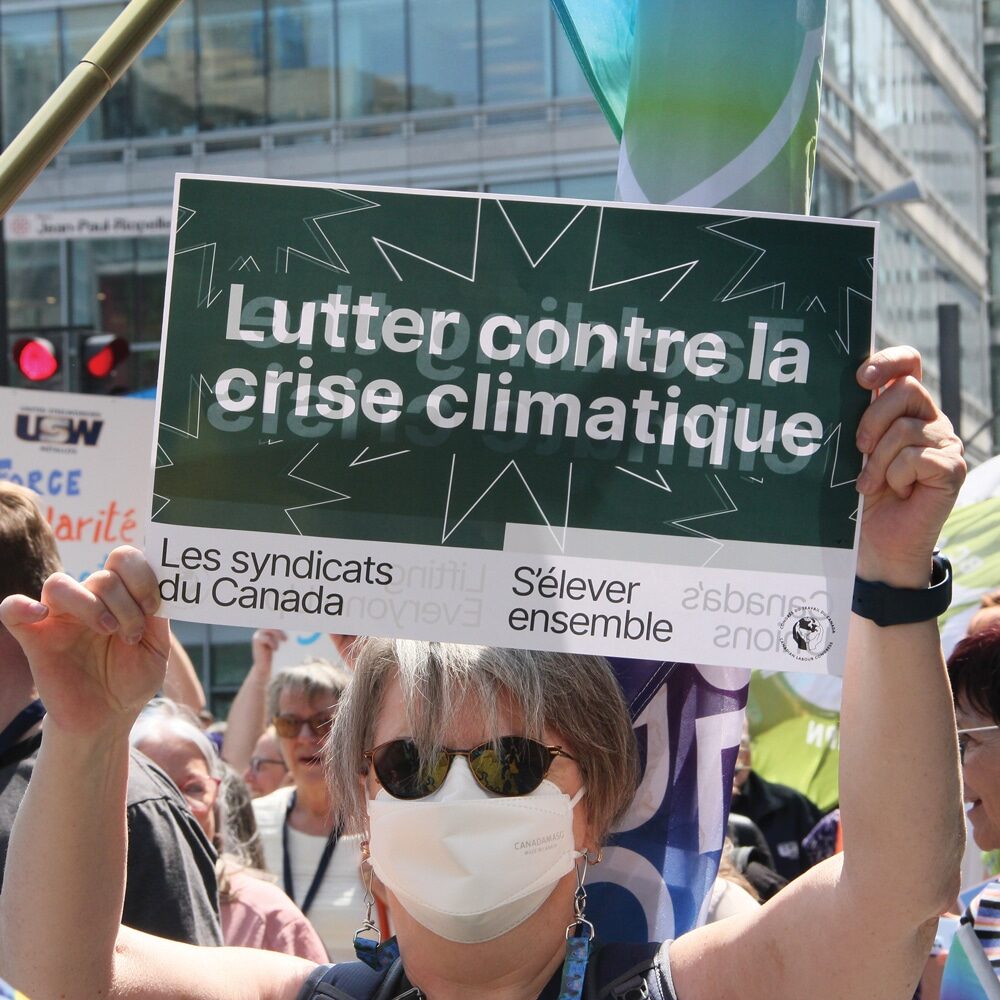The USW has a long history of recognizing the need for a cleaner environment and livable climate while protecting and creating good, union jobs. We acknowledge that we have an obligation to future generations to leave them a planet that can support human life.
In Canada, we were one of the two founding members of Blue Green Canada (BGC). Now nearing its 15th anniversary, BGC is an alliance between Canadian unions, environmental and civil society organizations to advocate for working people and the environment by promoting solutions to environmental issues that have positive employment and economic impacts. The current climate crisis has made it obvious that the way we do business will need some serious adjustment to slow the unnatural warming of the earth. BGC seeks to address how we make these adjustments.
As industrialized economies have stated commitments to decarbonization as part of broader pledges to keep global warming below 1.5º C, heavy industry and resource extraction come under threat. The USW has prioritized the place of a cleaner manufacturing sector within a decarbonized economy, while emphasizing the key role natural resources will play throughout clean economy supply chains. We have continually argued in favour of a comprehensive green industrial strategy that will link good jobs, worker-friendly trade policy, a healthy clean manufacturing sector and a critical minerals strategy to ensure that we keep good jobs in Canada while cutting the carbon.
The USW has participated in recent COPs in Egypt, the UAE and Azerbaijan, where we have advocated for the necessity of a green industrial strategy centred around clean manufacturing and circular supply chains.
Our union works for a cleaner environment while creating good, union jobs.
Sustainable Jobs Act
The USW played a key role in ensuring organized labour’s place in the federal Sustainable Jobs Act. The Act, passed in 2024, sets up a tripartite partnership council that includes labour and will have a mandate to advise on and develop clean economy action plans. We know that decisions about our jobs cannot be made without us, so we fought hard to make sure unions have a place in the planning for decarbonization.
Clean procurement
Sustainable procurement has been one of our union’s major focuses in Canada over the past several years and formed the basis of our Stand Up for Steel lobby in June 2024. We have pressured government, both directly and with Blue Green Canada allies, to include sustainability criteria in public infrastructure projects. Canadian steel, aluminum and wood products are some of the cleanest in the entire world. Having policies in place that promote the use of lower-emission manufacturing products in infrastructure projects will not only be a win for the environment, but also for the jobs of our members making high-quality, environmentally sustainable products.

Tariffs on EVs, steel, aluminum and other products from China
As a response to the United States imposition of 100 percent tariffs on electric vehicles, 25 percent on steel and aluminum in other parts of the supply chain, the USW in Canada demanded the Canadian government take concurrent action. In part as a result of USW advocacy, the federal government announced tariffs on EVs, steel and aluminum from China in the fall of 2024. Our union’s rationale centred around linked labour and environmental practices, emphasizing the relative low emissions from our steel and aluminum sectors. For Canada to stay true to its stated goals on environment and jobs, we need to ensure we’re using products manufactured right here at home and not prioritizing access to goods made cheap through inferior environmental and labour conditions.
Fighting for a better world
Our work on climate and environment is linked to our fight for a better future for all workers. Our union seeks to ensure not only that we will have good jobs in a clean economy, but also fairer societies and communities free from environmental racism, where we work closely with Indigenous partners, particularly in resource-dependent communities.